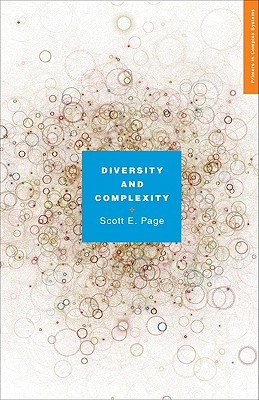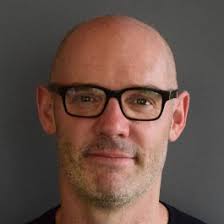

 Princeton University Press
Princeton University Press
Diversity and Complexity


Key Metrics
- Scott Page
- Princeton University Press
- Paperback
- 9780691137674
- 8.4 X 5.4 X 0.9 inches
- 0.8 pounds
- Science > System Theory
- English
 Secure Transaction
Secure TransactionBook Description
This book provides an introduction to the role of diversity in complex adaptive systems. A complex system--such as an economy or a tropical ecosystem--consists of interacting adaptive entities that produce dynamic patterns and structures. Diversity plays a different role in a complex system than it does in an equilibrium system, where it often merely produces variation around the mean for performance measures. In complex adaptive systems, diversity makes fundamental contributions to system performance.
Scott Page gives a concise primer on how diversity happens, how it is maintained, and how it affects complex systems. He explains how diversity underpins system level robustness, allowing for multiple responses to external shocks and internal adaptations; how it provides the seeds for large events by creating outliers that fuel tipping points; and how it drives novelty and innovation. Page looks at the different kinds of diversity--variations within and across types, and distinct community compositions and interaction structures--and covers the evolution of diversity within complex systems and the factors that determine the amount of maintained diversity within a system.
- Provides a concise and accessible introduction
- Shows how diversity underpins robustness and fuels tipping points
- Covers all types of diversity
- The essential primer on diversity in complex adaptive systems
Author Bio
I am the John Seely Brown Distinguished University Professor of Complexity, Social Science, and Management at the University of Michigan, and the Williamson family Professor of Business Administration, professor of management and organizations, Stephen M. Ross School of Business; professor of political science, professor of complex systems, and professor of economics, LSA. In 2011, I was elected to the American Academy of Arts and Sciences.
My research focuses on the myriad roles that diversity plays in complex systems. For example, how does diversity arise? Does diversity make a system more productive? How does diversity impact robustness? Does it make a system prone to large events?
I have written five books: “The Model Thinker – What you need to know to make data work for you” – stresses the application of ensembles of models to make sense of complex phenomena; “The Diversity [Bonus] – How Great Teams Pay Off in the Knowledge Economy” the follow up and expansion on the themes in The Difference; “The Difference”, which demonstrates the benefits and costs of diversity in social contexts, Complex Adaptive Social Systems (with John Miller), which provides an introduction to complexity theory, and, most recently, Diversity and Complexity, which explores the contributions of diversity within complex systems..
I have also published papers in a variety of disciplines including economics, political science, computer science, management, physics, public health, geography, urban planning, engineering, and history.
In my research, I have been fortunate to work with a collection of brilliant people — Lu Hong, John Miller, PJ Lamberson, Russell Golman, Kate Anderson, Ken Kollman, Evan Economo, Michael Wellman, and Jenna Bednar — as I try to make sense of these questions
In addition to writing papers and books, I have also filmed a video course on complexity called Understanding Complexity..
My research on diversity provides me with many opportunities to talk with community groups, high schools, corporations, government agencies, NGOs, and university audiences.
Education
- BA Mathematics University of Michigan,1985.
- MA Mathematics University of Wisconsin, 1988.
- MS Business, J.L. Kellogg Graduate School of Management, Northwestern University, 1990
- PHD Managerial Economics & Decisions Sciences, J.L. Kellogg Graduate School of Management, Northwestern University1993.
- Advisors: Stan Reiter and Roger Myerson
Committee: Mark Satterthwaite, and Matthew Jackson.
Source: University of Michigan
Videos








Community reviews
Write a ReviewNo Community reviews